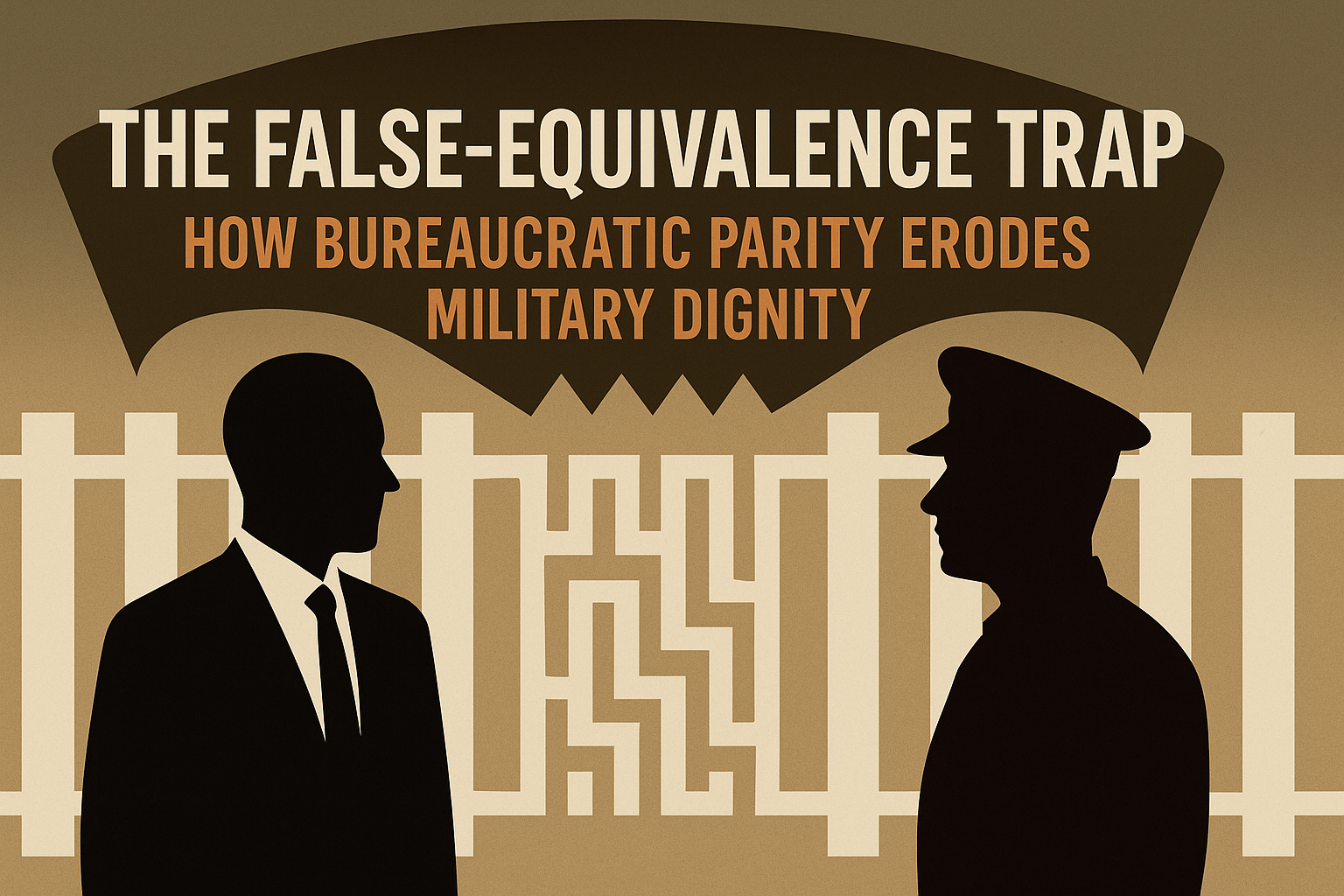When India introduced Non-Functional Upgradation (NFU) after the Sixth Central Pay Commission, the idea was simple: if career progression slowed because of limited vacancies, civil service officers would still move up in pay, pegged to their IAS batchmates. It was meant to reduce frustration in bureaucracies where promotions were scarce.
But over the years, NFU has come to symbolise something much bigger: the growing distance between India’s civilian cadres and its Armed Forces. Almost every other organised Group ‘A’ service enjoys the benefit, including the Central Armed Police Forces (CAPFs) after a 2019 Supreme Court ruling. The Armed Forces remain excluded.
A Policy Built on False Equivalence
NFU was introduced through a Department of Personnel and Training order in April 2009. It applied across Group ‘A’ central services, creating a system where promotion in pay grade did not depend on vacancy or responsibility but on time served. In 2019, the Supreme Court upheld Delhi High Court’s decision granting NFU to the CAPFs, rejecting the government’s claim that command structures would collapse under such a scheme .
That logic is striking: CAPFs, which also operate with strict hierarchies and functional command, were deemed capable of absorbing NFU without damage to discipline. Yet the Armed Forces—whose pyramidal structure makes stagnation even harsher—remain outside the framework. It is an exclusion that rests not on principle but on bureaucratic convenience.
Courts and Committees Flag the Problem
This inequity has been pointed out repeatedly. The Seventh Central Pay Commission acknowledged that exclusion of the Armed Forces undermined “status and morale.” Parliamentary Standing Committees have echoed that concern, warning of the risks to cohesion and dignity if anomalies continue unresolved .
In 2025, the Supreme Court again intervened, this time in broader litigation over service matters. It criticised the government for “dragging security personnel into unnecessary legal battles” and urged a policy solution rather than attritional courtroom contests . By the government’s own admission, more than 3,000 defence-related appeals are pending, many of them linked to pay and pension anomalies.
Costly in More Ways than One
The government’s litigation-heavy approach is not just demoralising; it is expensive. Crores of rupees are spent annually on counsel fees and appeals. Senior judges have openly noted that more money is spent fighting soldiers in court than might be required to resolve anomalies at policy level.
Meanwhile, the financial disparity grows. Civilian officers with NFU climb pay scales automatically, with projections under the forthcoming Eighth Pay Commission expected to take them well beyond ₹1 lakh per month at entry executive grades. Armed Forces officers of equivalent seniority remain behind, not only in monthly salary but in the pensions and parity that flow from it.
Recognition Beyond the Payslip
For soldiers, this debate is not only about rupees and ranks. Allowances, career progression, and parity signal recognition of their service. When CAPFs or civilian cadres benefit from automatic progression denied to those in uniform, the message received is one of diminishing status.
Veterans’ organisations have called this “false equivalence”: a system that equates military service with civilian administration, without acknowledging the unique liabilities of the profession of arms—early retirement, limited tenures, and the reality of unlimited liability.
A National Security Question
Morale is a strategic asset. From Siachen to Ladakh, India’s soldiers endure harsh conditions in the belief that the state stands behind them. When courts themselves are flagging the morale impact of endless litigation and inequity, the message is clear: parity is not a privilege but a necessity.
International practice shows this plainly. In the United States, United Kingdom, France, and Israel, military pay and progression are protected to sustain motivation. India is now an outlier, privileging bureaucracy over the profession of arms.
Correcting the Balance
NFU for the Armed Forces has become a litmus test. Either the government continues to resist, spending public money on appeals and watching morale erode, or it acknowledges what its own commissions and committees have already noted—that exclusion is unfair, and parity is overdue.
This is not about giving soldiers more than others. It is about ending a policy built on false equivalence that downgrades those who serve. The Armed Forces do not seek privilege, only fairness. A state that demands sacrifice in war must be prepared to honour dignity in peace.

